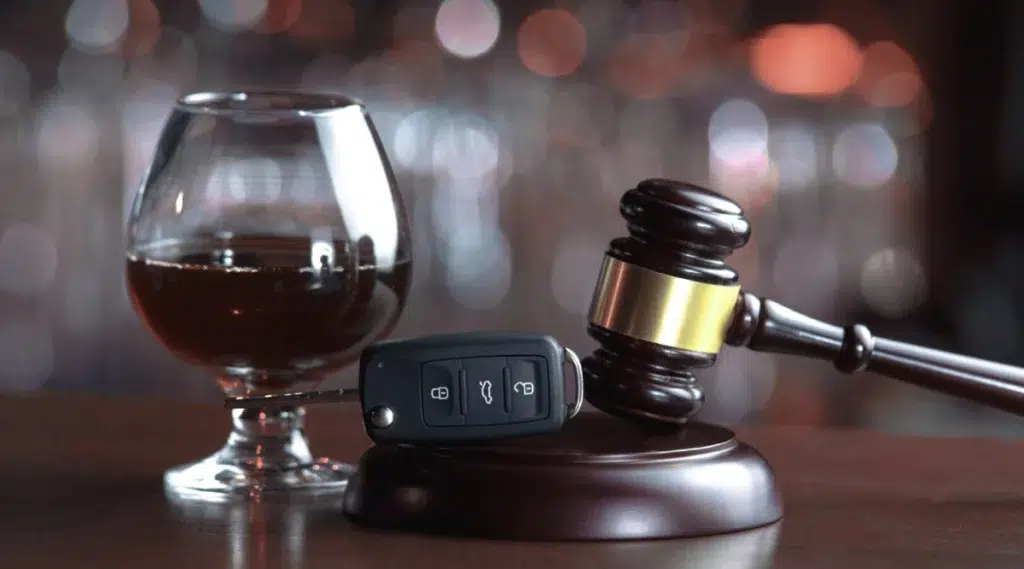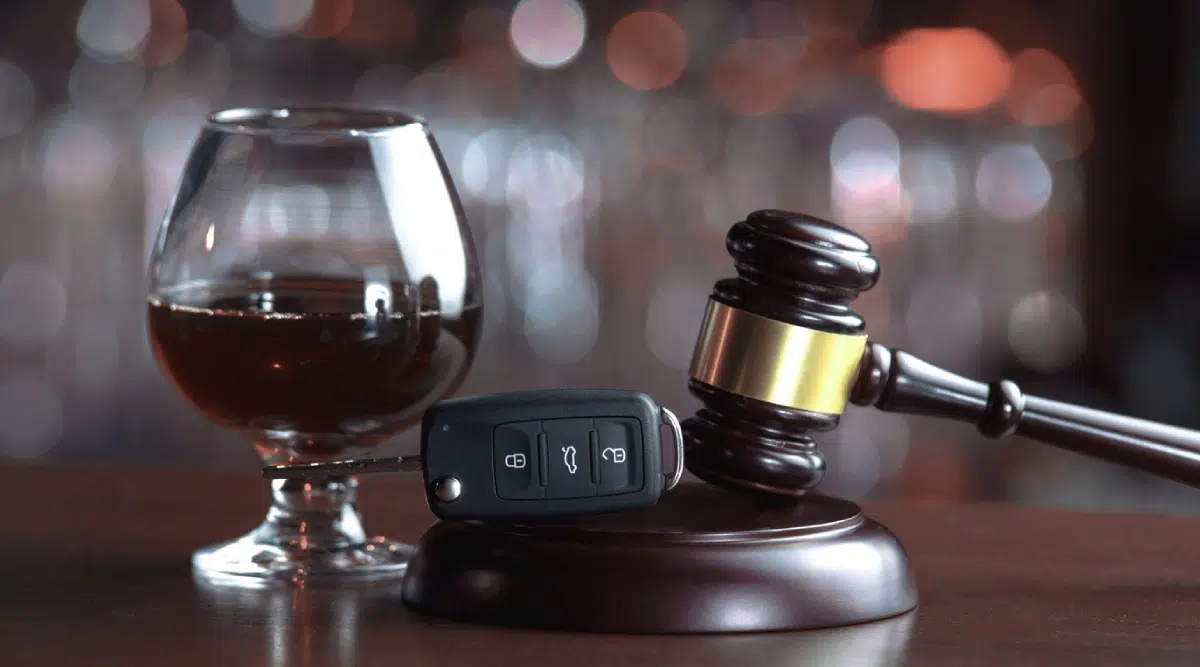
A DWI conviction can alter the course of your life. Although impaired driving is classified as a misdemeanor, a conviction can carry a jail sentence ranging from 24 hours to 36 months.
A Raleigh DWI lawyer from Hiltzheimer Law Office customizes a defense to your situation and can present exculpatory evidence and highlight shortcomings in the state’s case in order to pursue a dismissal of the charges or present mitigating evidence in an effort to secure the most lenient sentence possible in the event of a conviction.
If your case goes to trial, an experienced criminal defense attorney from our firm can present your defenses to the judge or jury and advocate aggressively for an acquittal.
Understanding DWI Charges in Raleigh
North Carolina’s DWI law includes three possible violations:
Impaired Driving
Drivers cannot drive any vehicle on a public road while under the influence of an impairing substance. These substances include alcohol, illegal drugs, and prescription medications.
“Under the influence” means the substance has “appreciably impaired” your physical or mental faculties. Drugs and alcohol can affect your judgment, diminish your coordination and balance, and alter your perception of speed or distance.
As a result, you might weave, drive erratically, or travel at an unusually high or low speed while under the influence. This violation can occur regardless of the amount of the substance detected in your body. Thus, prosecutors do not need a blood, breath, or urine test to prove this type of DWI offense.
Per Se Alcohol Offense
Drivers can commit what prosecutors like to call a “per se” offense by driving with a blood alcohol concentration at or over the legal limit of 0.08%. This offense is based on the presumption that most drivers cannot drive safely when their blood alcohol concentration is 0.08% or higher.
To secure this type of DWI conviction, prosecutors do not need evidence of your impairment, such as an eyewitness who saw your reckless driving. Instead, they need to prove beyond a reasonable doubt that your blood or breath alcohol concentration was a 0.08 or higher “at a relevant time after the driving.” It is not, however, as simple as introducing the result of a breath test showing a .08 or higher; the state must prove beyond a reasonable doubt that the actual concentration in your system at the time of driving (or a relevant time thereafter) was in fact a .08 or higher, which creates an opening for defenses relating to the reliability of the breath or blood test.
Per Se Drug Offense
A per se drug offense happens when a driver drives with any amount of a Schedule I controlled substance or its metabolites in their body. Schedule I includes the following:
- Opiates, including heroin, and opium derivatives
- Fentanyl derivatives
- Hallucinogenic substances, such as LSD and peyote
- Systemic depressants, including research chemicals such as clonazolam
- Stimulants, including methamphetamine
- MDMA/Molly/Ecstasy
- Synthetic cannabinoids
To secure a DWI conviction involving these drugs, prosecutors only need a chemical test showing any amount in the accused’s body while operating a vehicle. They do not need any evidence of impairment.
Schedule I omits some common drugs of abuse, including cocaine, methamphetamine, and marijuana. You can still be arrested and charged with DWI for driving under the influence of these drugs. However, rather than relying exclusively on a chemical test, prosecutors must show that the drugs impaired your ability to drive to convict you of a DWI.
Common Scenarios That Lead to DWI Charges
A DWI arrest often starts when you do something, such as committing a traffic law violation, that causes law enforcement officers to suspect that you are driving under the influence of drugs or alcohol. When a police officer suspects impairment based on objective evidence, they can lawfully stop you to investigate.
A thorough investigation may start by observing your condition. Poor driving, slurred speech, bloodshot eyes, and the smell of alcohol or drugs might cause the officer to suspect impairment.
The officer may ask you to perform standardized field sobriety tests. These tests presume to measure your coordination, balance, and cognition. While these tests are all subject to challenge by the defense, if your performance on the field sobriety tests does not meet the officer’s criteria, law enforcement officers may arrest you for violating the impairment prong of the state’s DWI law.
Additionally, the officers may ask you to submit to a portable breathalyzer test. This test uses the alcohol measured in your breath to estimate the alcohol content of your blood. While the numerical value of a portable breathalyzer is not admissible in North Carolina courts for any reason, officers will often rely on that result in making an arrest decision. This practice is an improper police procedure and also creates an opening for a challenge by the defense.
In many cases, officers may administer both a breath test and field sobriety tests. This procedure gives prosecutors evidence of both an impairment-type DWI violation and a so-called per se-type DWI violation. By having both options, the prosecution increases its odds of securing a DWI conviction. It is critically important to have a skilled DWI defense lawyer in your corner to challenge every aspect of the stop, investigation, arrest, and any chemical analysis.
Legal Process of Your North Carolina DWI Case
When a traffic stop in Raleigh, NC, gives officers what they believe is reasonable suspicion of impaired driving, your legal trouble begins. If the officers believe they have probable cause to suspect a DWI, they will arrest you and transport you to the jail in Wake County.
You may be booked into jail and spend at least some time in a cell, depending on the circumstances. You will be seen by a magistrate who will determine whether to release you and whether to impose a bond or other conditions of release.
It is in your interest to hire a DWI defense attorney prior to your first court appearance. If you appear without a lawyer, you will be informed of your charges and your right to counsel at your first district court appearance. The judge will also consider any request for bond if you remain in custody at that time. Bond allows you to pay money and remain free until trial, letting you help your Raleigh DWI lawyer prepare your defense strategy while you continue living your life rather than sitting in jail awaiting trial.
You and your legal team will prepare for trial by gathering evidence to support your DUI defense. This pre-trial period is also when the district attorney’s office may be open to discussing a plea bargain, though plea negotiations rarely result in the dismissal or reduction of a DWI in North Carolina.
A plea bargain occurs when you plead guilty to a charge in exchange for a reduction in charges or a negotiated sentence. This option potentially removes the risk of a harsh sentence for your DWI offense. However, it also eliminates your ability to secure an acquittal.
If you and your attorney are not able to reach a plea agreement, you and your DWI lawyer may take your case to trial, depending on the facts and circumstances of your case. At trial, prosecutors will present their evidence supporting your DWI charges. They must prove all the elements of your DWI case beyond a reasonable doubt to get a DWI conviction.
If you decide to contest your DWI charge, you and your Raleigh DWI attorneys may fight the case by way of pre-trial motions arguing constitutional or statutory violations or with a full trial. A DWI lawyer has many options for defending you, including raising doubts about the police officer’s legal basis for a traffic stop, probable cause for your arrest, and a variety of arguments relating to the reliability of the field sobriety tests and chemical tests, along with other potential defenses determined by the facts of your case.
At the end of a district court trial or pre-trial hearing, the judge will issue a ruling, typically immediately in the same session of court. If you are convicted of a DWI in district court, you have the right to appeal your case to Superior Court for a jury trial.
The Importance of Hiring a Raleigh DWI Attorney
A Raleigh DWI lawyer plays a critical role in protecting your rights and fighting for a fair process and a positive outcome. A criminal conviction can result in jail time, fines, and driver’s license suspension. Moreover, you will have a criminal record that could affect your ability to find employment, rent a home, or pursue higher education.
Under the American legal system, prosecutors have the burden of proof. In other words, you are innocent until prosecutors prove that you violated North Carolina’s DWI law. A DWI lawyer fights for your future by exposing holes in the prosecution’s DWI case and forcing them to prove each element of the offense.
If your case ends with a plea bargain or a conviction, your DWI law firm presents mitigating evidence to seek a fair sentence, including substance abuse treatment, if appropriate.
Factors Considered During Sentencing in a DWI Case
If the court convicts you, the case enters the sentencing phase. North Carolina law treats convictions in drunk-driving cases as misdemeanors unless there is a serious injury, death, or a prior record that places the defendant in the habitual impaired driving category.
However, state law uses a complex sentencing system that uses mitigating and aggravating factors to determine your sentence, including whether you may face jail time and/or probation, community service requirements, and other conditions that may be imposed by the sentencing judge.
Grossly Aggravating Factors
Under North Carolina’s DWI sentencing law, the court must consider the following “grossly aggravating” factors:
- Each previous DWI conviction within seven years
- Committing the DWI offense while their license was revoked as a result of an impaired driving offense
- Causing a drunk driving crash that seriously injured another person
- Having a child or disabled person in the car during the DWI
The judge must impose an Aggravated Level One sentence if 3 or more grossly aggravating factors are present, Level One with 2 grossly aggravating factors or a minor/disabled person in the vehicle, or Level Two punishment when 1 grossly aggravating factor is present in the defendant’s DWI case.
Aggravating Factors
The judge will also consider the following aggravating factors:
- Severe driving impairment or a blood alcohol content of at least 0.15%
- Reckless driving
- Negligent driving that caused a collision
- Committing a DWI during a period of license suspension (non-DWI-related)
- Two or more prior traffic convictions within the last 5 years carrying 3+ points
- Speeding conviction while escaping or attempting to escape the police
- Conviction of going at least 30 miles per hour over the posted limit
- Traffic violation involving a school bus stopped with its lights flashing
Except for prior convictions, these violations must occur at the same time as the defendant’s DWI charges. In other words, the prosecution’s DWI case must allege that the defendant committed those offenses at the time of the impaired driving charge.
When there are no grossly aggravating factors, the judge weighs these aggravating factors against mitigating factors to determine the legal consequences of the defendant’s DWI charges and will sentence the defendant at a Level Three, Four, or Five, with a Level 5 sentence being the most lenient.
Mitigating Factors
Finally, the court considers the following mitigating factors that may lessen the possible punishment:
- Slight alcohol impairment and a blood alcohol content of 0.09% or lower
- Slight alcohol impairment without a blood, breath, or urine test
- No traffic violations at the time of the offense other than the impairment
- A safe driving record for five years preceding the DWI case (no offenses carrying 4 or more points)
- Impairment caused by a drug with a valid prescription taken as instructed
- Voluntary assessment by a mental health professional and participation in treatment post-arrest
- Completion of a drug and alcohol assessment, compliance with its recommendations, and monitored alcohol abstinence for 60 days
The final two mitigating factors are significant because they can occur after you get charged with a DWI in Wake County. In other words, you cannot go back and change what happened. But you can proactively mitigate the legal penalties you may face by going to treatment.
Effects of a DWI Conviction in North Carolina
After balancing all the factors, a judge can impose the following criminal penalties for a North Carolina DWI conviction:
Aggravated Level One Punishment
If a judge imposes an Aggravated Level One punishment, you must be sentenced to a minimum mandatory jail sentence of a “split sentence” of 120 days in jail or an “active sentence” of 12 to 36 months in prison.
You are not eligible for parole, but you can be released on probation for the final four months of your sentence. During those four months, you must abstain from alcohol and use an alcohol monitor.
The judge can suspend any portion of the jail term and impose probation, with the exception of the mandatory 120 days of active jail time. Under an Aggravated Level One sentence, you must serve at least 120 days in jail, refrain from consuming alcohol for at least 120 days, undergo a substance abuse evaluation, and complete the treatment or education required to regain your license.
Within the judge’s discretion, inpatient treatment (rehab) may be used to offset some or all of the active jail sentence.
Level One Punishment
Level One punishment is significantly less onerous than Aggravated Level One punishment. The court will sentence you to a minimum mandatory jail term of 30 days. The maximum jail term is 24 months.
The court can reduce the minimum mandatory jail term to ten days and place you on probation, which requires you to abstain from alcohol and wear an alcohol monitor for at least 120 days.
If you wore an alcohol monitor before the trial, up to 60 days of that time can count against the 120-day monitoring period. You must also complete a substance abuse evaluation and the education or treatment to restore your driver’s license.
Under a Level One judgment, inpatient treatment may also be used to offset the active jail sentence, within the discretion of the sentencing judge.
Level Two Punishment
Level two punishment requires a minimum mandatory jail sentence of seven days with an upper limit of 12 months. A judge can release you on probation after seven days and require you to refrain from alcohol for 90 days. You will also be required to have an assessment and complete the education or treatment required to recover your license.
It is possible for your attorney to negotiate the active jail sentence to be served on weekends, and again, inpatient treatment may be used to offset jail time at the discretion of the judge.
Levels Three Through Five
Levels three through five have similar requirements but with differing mandatory minimum jail sentences. At levels three through five, your sentence may include the following:
- A minimum mandatory jail sentence OR community service requirement
- Probation
- Community service
- Evaluation for substance abuse disorder
- Education and training to recover their driver’s license
On a Level Three judgment, the judge must sentence you to a minimum of either 72 hours in jail or 72 hours of community service; on a Level Four judgment, 48 hours; and on a Level Five, 24 hours either in jail or community service to be completed at a nonprofit organization. Inpatient treatment can also be used in a Level Three, Four, or Five judgment to offset community service or jail time.
The Role of a DWI Lawyer in Your Case
A DWI lawyer can help you at each stage of the process. A criminal defense attorney knows criminal law. They can protect you by asserting your Constitutional rights, including the right to refuse to answer questions and the right to be free from unreasonable traffic stops.
A Raleigh DWI lawyer also understands North Carolina law and local court rules. Your attorney will fight for your release on bond if you remain in custody after your arrest. They will also scrutinize the police reports for any improprieties, including:
- Traffic stops conducted without sufficient evidence (“reasonable suspicion” or probable cause)
- Improperly conducted field sobriety tests or chemical tests
- Contamination of blood, urine, or breath samples that may affect chemical test results
- Illegal or coercive questioning
Your lawyer will fight your charges in court, including seeking a dismissal if the police or prosecutors violated your Constitutional rights. At the same time, your lawyer will remain open to negotiating with prosecutors to explore options for the most lenient sentence possible.
If your attorney is not willing to reach a negotiated plea agreement, your Raleigh DWI lawyer can take your case to trial. The lawyer will attempt to undermine the prosecution’s case by highlighting its flaws and presenting your defenses. Your attorney can also advocate for a fair outcome from a jury if you appeal your case to the Superior Court.
Why Choose Hiltzheimer DWI Attorneys?
When your freedom and reputation are at stake, you need an experienced attorney to handle your case. The attorneys at Hiltzheimer Law Office have over 20 years of combined legal experience. We focus solely on criminal defense work and have successfully resolved hundreds of DWI cases.
Contact us for a confidential consultation to discuss how we can help you.






